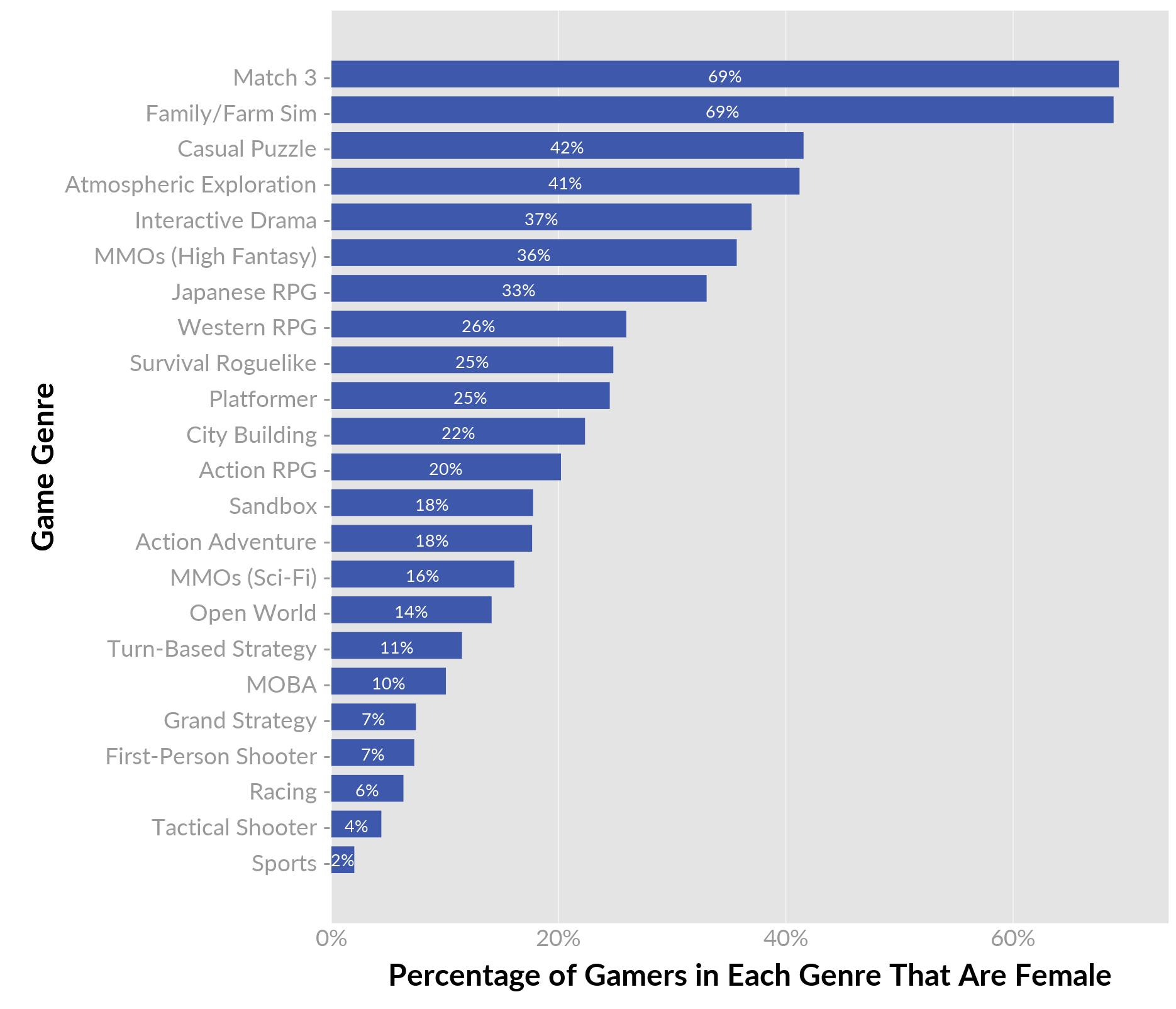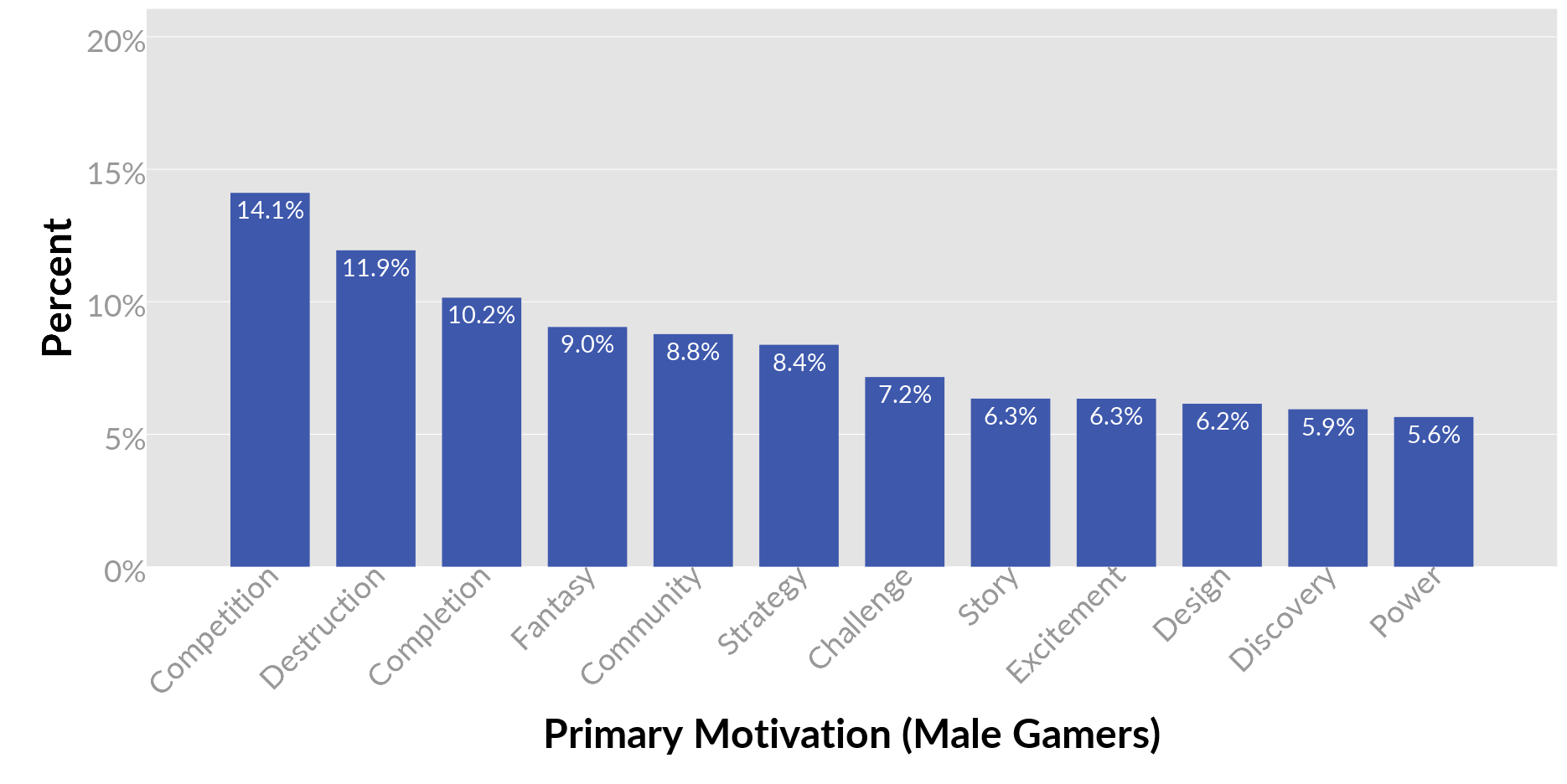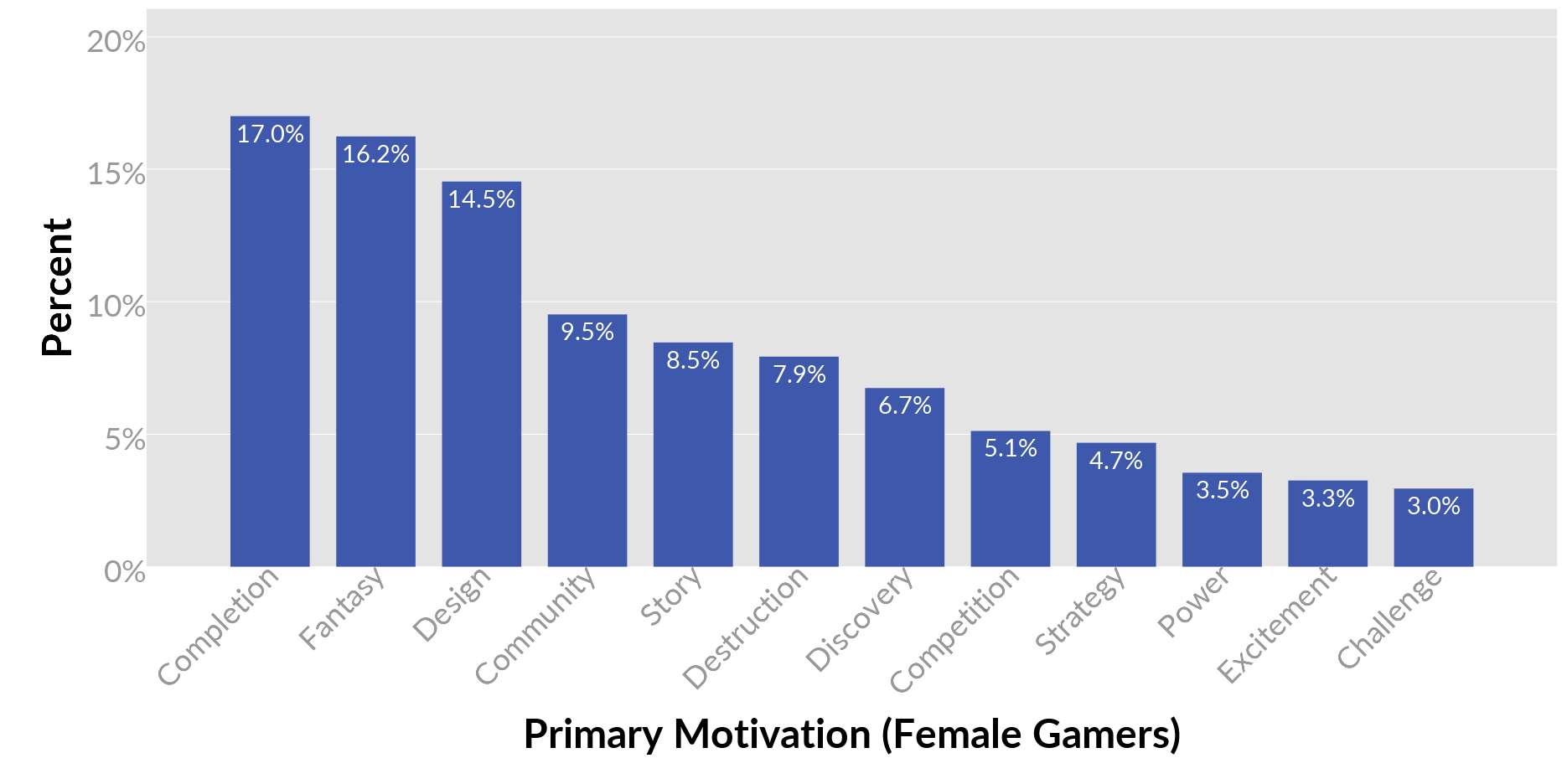Two thirds of children and adolescents, and a substantial number of adults now play video games. Such popularity has drawn in the usual pessimists from the research community looking to spy a catastrophe in the usage of the new technology.
Gaming addiction was recently classified as a mental disorder in the World Health Organization’s International Classification of Diseases (ICD), however there appears to be a lack of research to back the claim of addictive properties of games.
The lack of evidence is an indicator that some other factor is motivating researchers to prematurely formalize serious gaming as a disorder, but more important is the fact that the rush to demonize gamers falls mostly on the shoulders of boys. Now why might that be?
Most likely because of an addiction to misandry.
I hope the WHO will consider placing that diagnosis in the ICD, right next to gaming addiction disorder.
There are more than 2.5 BILLION gamers across the world, with men and boys constituting significant majority of players overall and, interestingly, with the sexes showing a clear divide on their preference of game genres. Here is a table showing female game preferences, which unsurprisingly indicates an inverse to the typical game preferences of males:

The primary motivation for males is competition, goal-oriented destruction, and completion of game, while discovery and power (powerful character, gear, stats) are the least common.

For women completion of game (gathering all stars/collectibles, and finish mission), along with fantasy (being someone else, somewhere else) is highest in importance, while excitement and challenge (practice, highly difficulty missions) are the least common.

For all the debate about gender similarities in mainstream public life, the private world of gaming is suggestive of differing gendered motivations, leading to the question of whether these preferences are biological echoes of hunters and gatherers and not merely evidence of cultural learning.
As boys’ natures and physicality are demonized as ‘violence-promoting’ and therefore socially unacceptable, boys have been turning to more private arenas of expression; spending less time on the sports field or hiking mountains and more time running and fighting through landscapes in an online world of imagination.
I’m not suggesting gaming is simply a compensation for the demonisation of boys in mainstream culture, although that would be one factor contributing toward its popularity; to be gaming is to be away from the daily shit show. The fun of the game itself, of the adventure, teamwork, the warm male camaraderie, the skill and competition would be sufficient to draw a lot of males to the medium in even a non-misandric culture, though perhaps in that male-friendly environment the number of hours played would be lower and interspersed with other recreational activities.
Naturally blue pill society is very uncomfortable with boys finding a source of shame-free joy, so the ‘addiction’ hysteria has been building strength for over a decade, especially from the older generation and also by young women who see in computer gaming a lack of male usefulness and a Pandora’s box of pathologies: the response is to shame boys out of going their own way.
Accentuate the positive
As a teenager my son Connor was deep into gaming like most of his male friends, and yes we fought over the amount of time he spent gaming like so many parents and sons do. Much of that fight was due to my ignorance (being fed popular negative stereotypes about gaming), and part of it was due to his excessive usage habits. By way of compromise we ended up making a timetable of allowed gaming hours for each day of the week; 4 hours per day on weekdays, and 6 hours on weekend days and holidays.
Later, after chancing on some research by clinical psychologist Isabela Granic I was delighted to learn there were many positives to gaming, and having a psychology background was able to appreciate it immediately in terms of my son’s attraction to and use of the medium. In her research paper The Benefits Of Playing Video Games Granic provides a synopsis of the negatively framed research on video gaming, while suggesting a new and more positive way forward:
Video games are a ubiquitous part of almost all children’s and adolescents’ lives, with 97% playing for at least one hour per day in the United States. The vast majority of research by psychologists on the effects of “gaming” has been on its negative impact: the potential harm related to violence, addiction, and depression. We recognize the value of that research; however, we argue that a more balanced perspective is needed, one that considers not only the possible negative effects but also the benefits of playing these games. Considering these potential benefits is important, in part, because the nature of these games has changed dramatically in the last decade, becoming increasingly complex, diverse, realistic, and social in nature.
A small but significant body of research has begun to emerge, mostly in the last five years, documenting these benefits. In this article, we summarize the research on the positive effects of playing video games, focusing on four main domains: cognitive, motivational, emotional, and social. By integrating insights from developmental, positive, and social psychology, as well as media psychology, we propose some candidate mechanisms by which playing video games may foster real-world psychosocial benefits. Our aim is to provide strong enough evidence and a theoretical rationale to inspire new programs of research on the largely unexplored mental health benefits of gaming.
Granic and her colleagues outlined numerous benefits of gaming, including the fact that gaming promotes a wider range of cognitive skills that can enhance educational performance; instills a sense of life motivation stemming from repeated seeking of game goals; provides regulation of emotional states and teaches the managing of moods to enhance emotional states; and provides an avenue to participate in team play and social interaction that strengthens social skills, to name just a few.
In the light of Granic’s research I decided to support Connor’s interest in gaming when he was younger, and eventually allowed him to skip the last two years of school (even though he was more than capable and willing to do them) so he could go straight to college to study a certificate-4 in graphic art. That was his calling and his passion. He completed it with flying colors, and is now two thirds of the way through a diploma course on game construction and is top of his class in all subjects – even creating games in his spare time so that he becomes more skilled in the art.
As a bonus of supporting his passion we’ve developed a deeper, more loving father-son relationship, one that was facilitated by smashing the generation gap and getting real about the realities of gaming. In a recent conversation he mentioned he’s inspired by the story of Steve Jobs and other entrepreneurs who started in their garages, and is working on getting together a team of motivated game-creators to form a small business. With gaming now grossing far more than Hollywood movies, and with the necessary motivation and diligence, he stands a good chance of making it financially.
Why don’t we hear more about the positives? Because it doesn’t chime with the global habit of shitting on everything enjoyed by males while denying all benefits. How many other sons are waiting for the social and parental demonizing to stop and for the support for their calling to begin?
Those who decide to support their sons can still discuss the hot issues such as the problem of spending too much time behind the screen; the need for more exercise, for vitamin D, for adequate sleep, for maintaining basic hygiene and housekeeping; and we might even discuss the more dubious charge that young men are not spending enough time with their girlfriends, that they are supposedly failing in the chivalric contract — a conversation that hopefully ends in dismissing the demand as a gynocentric complaint holding no moral value in the age of true equality and self-determination.
But much more important is to understand all that’s good, no great, about gaming, and to celebrate it with a world that is fixated on the negatives. In this task our boys need us to have their backs.
